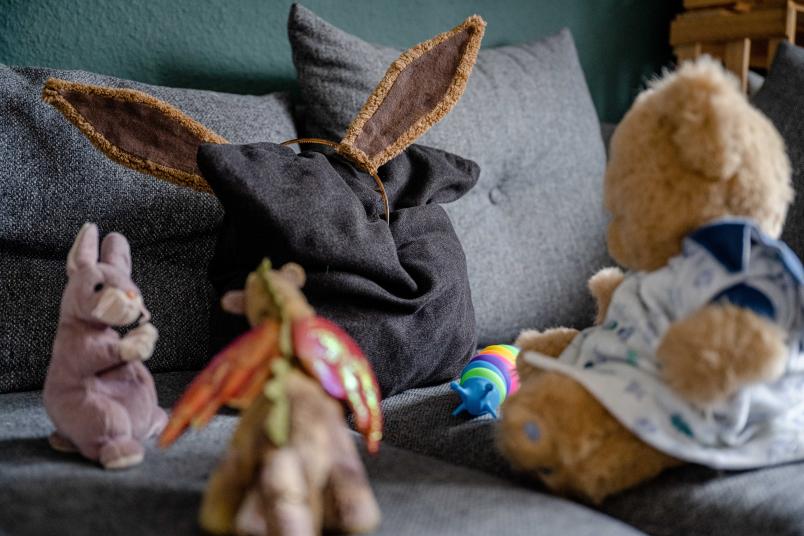
Philosophy
What pretend play tells us about social cognition
Julia Wolf analyses the importance of pretend play for exploring the development of social cognition.
The ability to adopt another person’s perspective is important for social cognition and, consequently, for human coexistence. But at what point during child development are we able to do this? Dr. Julia Wolf from the Institute for Philosophy II of Ruhr University Bochum, Germany, examines whether pretend play provides an indication of the ability to attribute mental states to other people. According to her thesis, even two-year-olds can pretend to drink tea and thus adopt a perspective that doesn’t reflect reality. But only later are children able to attribute a perspective to others that they don’t share. Julia Wolf published her work in the journal “Synthese” of 14. Decembre 2022.
Why did Sarah go to the kitchen?
Every day we adopt the perspective of other people in order to understand their behaviour: Let’s say Sarah went to the kitchen. I recognise that she did so because she wanted to get coffee and believes that there’s coffee in the kitchen. “The important thing is that this also applies when I myself don’t want coffee, or when I know that in fact the coffee has run out and therefore it won’t be possible to get any in the kitchen,” explains Julia Wolf. “In other words, in order to understand others, it’s important to be able to adopt their perspective, even if it differs from your own.” The ability to do this is a key milestone in the development of social cognition. Evidence suggests that this ability usually develops around the age of four.
Children as young as two pretend to drink tea
But even earlier than that, children have the ability to pretend play. They pretend the sofa cushion is a cat and a toy brick is a train. When they engage in this make-believe, children usually don’t mistake it for reality, but understand perfectly well what is real and what is not. So it looks like even two-year-olds show highly developed cognitive skills in pretend play, such as the ability to distinguish between pretence and reality, and thus to adopt different perspectives about a situation. Plus, pretend play is a social phenomenon: children also pretend play with others. If someone pretends to pour tea into a child’s empty cup, the child may follow suit and pretend to drink from that cup. “This indicates that children are not only able to take alternative perspectives, but also to deduce another person’s perspective from their behaviour and respond appropriately,” elaborates Julia Wolf.
But does that mean that children can attribute a mental state to others at such an early age? “In my opinion, it doesn’t,” concludes Julia Wolf. While pretend play requires children to share a common pretend perspective, it doesn’t require them to distinguish between their own perspective and that of another person. “If a child is pretending to be at a tea party with their father, they don’t need to distinguish between their own pretend perspective and their father’s,” points out the researcher. “Rather, the pretend perspective is shared. Thus, there’s no need to attribute mental states to another person.”
It’s the context that counts
"Still, pretend play remains crucially important for theories on the development of social cognition,” says Wolf. It not only indicates that it is possible to take on another perspective in some contexts, but also that children are able to adopt a perspective that contradicts reality – contrary to what some other theories claim. Moreover, the fact that they are aware that what is pretended is not real indicates that they are also able to coordinate these different perspectives to a certain extent. “This suggests that much of the ability to adopt perspectives, which is necessary for social cognition and the attribution of mental states, is already present at an early childhood stage,” says Julia Wolf. “What we need to take into account, then, is: in what kind of context are the children embedded in, and to what extent can this context support the adoption of other perspectives?”